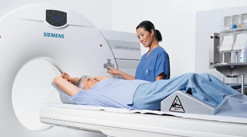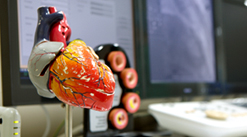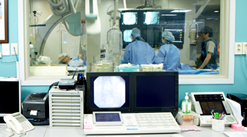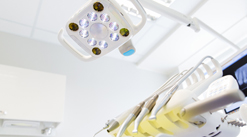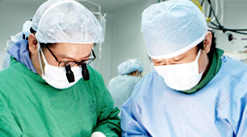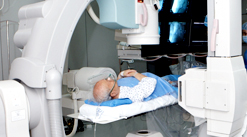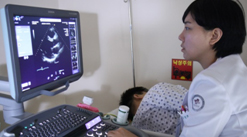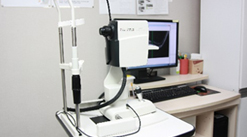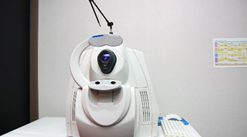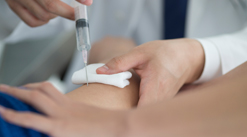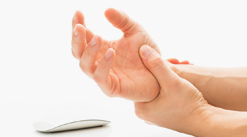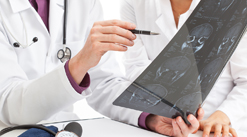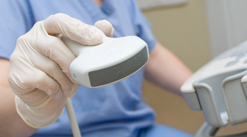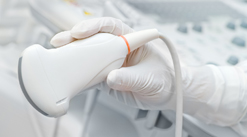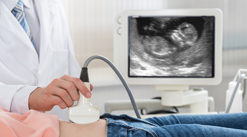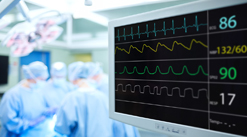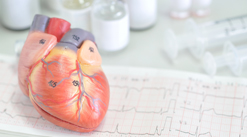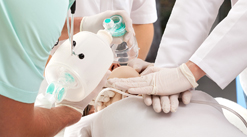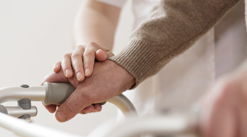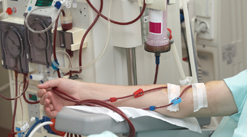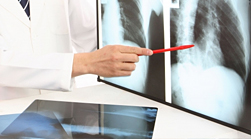- home
- Incheon Sejong Hospital
- Specialty Center
-
Physiological Function Test Center
- Health Improvement Center
- Endoscopy Center
- Internal medicine Center
- Surgery Center
- General Health Check-Up Center
- Emergency Medical Center
- Rehabilitation Center
- Spine-Joint Center
- Physiological Function Test Center
- Minimal Invasive Operation Center
- Dementia Special Center
- Infection Center
- Center for Bloodless Medicine and Surgery
- Breast and Thyroid Cancer Center
- Center for Precision Medicine
- Heart Transplantation Center
- Women’s Center
-
Spine-Joint Center
Physiological Function Test Center
-
Minimal Invasive Operation Center

The Specialized Examination Center - located at the end of the corridor of cardio-cerebrovascular center, closely connected to each testing rooms,
for fast examination and diagnosis with minimum flow of traffic for patients.
To evaluate health and functional state of the heart. Facilitated with various examining rooms to diagnose different cardiac diseases (myocardial infarction, cardiac valvular diseases) and to determine neurological and cerebrovascular health and function, are separated rooms for echocardiography, electrocardiography, ambulatory electrocardiography, exercise stress test, pulmonary functions tests and neurological and obliquity (gradient) testing, and reading.
Echocardiography
A test to record electric energy transformed from the collected ultrasonic waves reflected from the heart, in video format. The heart can be directly seen, just like during an ultrasound sonography for fetus in womb. There are no injections and pain involved in this test. Fasting is unnecessary although for transesophageal sonography a fasting period of about 4 hours is needed
- This test takes 20~30 minutes
- Painless
- What is this test for?
-
- Symptoms of chest pains, dyspnea and edema
- Audible heart murmurs during auscultation
- Diagnosis and evaluation of valve stenosis and reflux
- Diagnosis of acute, chronic myocardial ischemia (ex. myocardial infarction)
- Diagnosis of aortic dissection(tearing) or aortic aneurysm
- Diagnosis of congenital cardiac conditions and Kawasaki disease
- Diagnosis of cardiac tumors
Electrocardiography
This is to record electric stimulation from the heart into a graph, passed on through connecting electrodes on arms, legs and chest. This is useful for diagnosis of myocardial infarction, cardiomegaly, arrhythmia, with a short span of time taking and absolutely no pain derived from the examining process. The cost is low and the examining method is simple.
- This test takes 5 minutes
- Painless
- What is this test for?
-
- To determine for cardiac diseases
- Chest pains, palpitation, tightness of chest
- Cases of dyspnea, vertigo and syncope
- Basic admission routine test and surgeries
Ambulatory Electrocardiography
This is to record and analyze the electrocardiograph during everyday life, carried out by adhereing electrodes on the chest to connect with examining equipment. The exact type of arrhythmia can be analyzed by figuring out what type of electrocardiogram show, at the time of incident, while also considering the symptoms hand-recorded by the patient.
- This test takes 15 minutes
- This equipment must never get wet.
- What is this test for?
-
- Vertigo and syncope caused by palpitation (a sudden rapid and strong pumping sensation of the heart)
- Those taking antiarrhythmic drugs for treatment of arrhythmia
- Those with artificial pacemakers implanted.
Ambulatory Blood Pressure Monitoring
A diagnostic test for hypertension and hypotension, this is to measure blood pressure during everyday life, with a sphygmomanometer attached.
- This test takes 15 minutes
- This equipment must never get wet.
- What is this test for?
-
- Symptoms showing hypertension (such as back neck stiffness, chest tightness, headaches, multiple vision)
- Symptoms showing hypotension (such as vertigo, syncope, nausea, headaches)
- A significant blood pressure fluctuation within a day
- Blood pressure differences shown between home and hospital.
- For adjustments in blood pressure medication
Exercise Pressure Test
This is a test to gain information in the cardiovascular system that cannot be retrieved while resting, by exercising a simple routine (walking for about 10 minutes → speedwalking → running) on the treadmill to exert pressure on the heart, in order to observe the changes in electrocardiogram, blood pressure and pulse rate.
- This test takes 20 minutes
- Visit in comfortable clothing.
- What is this test for?
-
- Chest pain with severe pain and compression in the middle of chest (only occurring when exercising or climbing stairs and disappearing when at rest)
- Cases with old age or diabetes
Cardio-pulmonary Exercise Testing (Respiratory Gas Metabolic Analysis)
Also done by exercising on treadmill, and carried out simultaneously with the Exercise Pressure test for measuring electrocardiography, blood pressure and pulse rate, this test is to measure the maximum oxygen consumption, anaerobic threshold, pulmonary residual volume and pulmonary diffusing capacity.
- This test takes 30 minutes
- Patient will put on an additional mask on face.
- What is this test for?
-
- First-time sport beginners
- Evaluating motion ability of myocardial infarction, angina pectoris patients in pre and post surgery
Nerve(Electroneuromyography)
To measure the stimulus conduction speed of peripheral nerves in arms and legs or the action potential in muscle cells for evaluation of abnormalties in those specific neurons and muscles, using electric stimulus or needle electrodes.
- This test takes 1 hour
- If taking anti-coagulation medication, alert beforehand.
- What is this test for?
-
- Useful for diagnosis and prognosis of Carpal Tunnel Syndrome
- Paresthesia such as numbness in hands and feet
Cerebral Blood Flow Ultrasonography
Blood pumped from the heart are usually transferred to the brain through the carotid artery; however, if a kind of cerebrovascular disorder happens to be present, insufficient amount of blood will be supplied to the brain thus causing headaches or cerebral strokes. This test is to screen for abnormalities in the cerebrovascular system, by measuring the blood flow rate, stenosis and inflation of cerebral blood vessels through ultrasonography.
- This test takes 1 hour.
- What is this test for?
-
- Cerebral strokes or similar symptoms
- Headaches, dizziness
Cognitive Function Test
To evaluate the cognitive function of cerebrum (such as memory, decision-making) to determine for dementia, amnesia (forgetfulness) and decline in memory.
- This test takes 30 minutes~1 hour
- Please prepare a hearing aid or a magnifying glass.
- What is this test for?
-
- Dementia
- Memory declination or loss
- Forgetfulness and other evaluations of cognitive function
Electroencephalography
When brain cells show unusual activities due to various reasons, an Electroencephalographis study is done to check for abnormalities, carried out by attaching electrodes to the patient’s head.
- This test takes 1hour
- What is this test for?
-
- Unidentified syncope, dizziness and headache
- Epilepsy or symptoms feasible to epilepsy
Evoked Potential Test
This test is done by stimulatig the peripheral areas of white matter and measuring the outcoming potential in the central nervous system (cerebrum and vertebral nerves).
- This test takes 30 minutes ~ 1 hour
- What is this test for?
-
- To determine abnormalities in optic nerve (visual evoked potential test)
- Auditory nerve, dizziness, syrigmus(ear-noise), immature infants (auditory evoked potential test)
- Cerebral palsy, multiple sclerosis, vertebral diseases and others (somatosensory evoked potential)
Autonomic nervous system Examination
This test is to examine heart rates and blood pressure to find abnormalities in the autonomic nervous system, which maintains the overall balance in our bodies, which may cause symptoms such as vertigo and palpitation.
- This test takes 30 minutes
- Refrain from taking bleood pressure medications on day of examining.
- What is this test for?
-
- Postural hypotension, vertigo and etc




